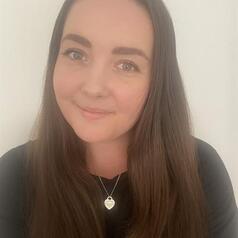
Danielle Guy
PhD Candidate in Psychology, Bournemouth University
Danielle is a Postgraduate Researcher in the Department of Psychology (Science and Technology Faculty), she is currently completing a PhD under the supervision of Prof. Katherine Appleton and Prof. Jeffery Bray. Her PhD is focused on healthy sustainable eating, exploring the factors that affect making sustainable food choices, understanding the barriers and facilitators to increasing and developing strategies to help encourage healthy sustainable diets in the UK. She recently worked on a clinical research trial investigating a role for sweet taste in reducing free sugar intakes in the general population. More broadly, she is interested in nutrition security, disordered eating, and mental health.
She teaches psychology, behaviour change, and research methods in relation to nutrition part-time for undergraduate courses in the Department of Rehabilitation and Sports Science. Her academic background is in Psychology (BSc Psychology and MSc Health Psychology).
Less ![]()
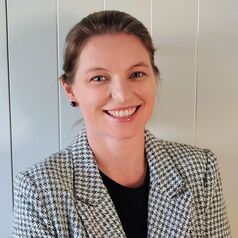
Danielle Harrop
Cardiologist; PhD candidate, Faculty of Medicine, The University of Queensland
Danielle is a practising cardiologist at the Princess Alexandra Hospital in Brisbane, Australia, where she sub-specialises in advanced cardiac imaging. Her PhD thesis investigates how care and clinical outcomes for Aboriginal and Torres Strait Islander patients with cardiac disease can be improved by a novel hospital-based model of care.
Less ![]()
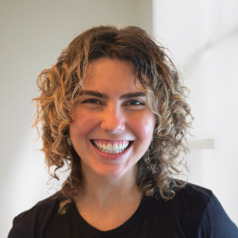
Danielle Howe
PhD Candidate, Western Sydney University
Danielle (Dani) Howe is a PhD Candidate at NICM Health Research Institute, Western Sydney University. Her PhD is focused on the Endo@Work project: developing and evaluating employer guidelines for supporting those with endometriosis in the workplace. Her PhD work is in partnership Endometriosis Australia and under the supervision of Dr Mike Armour, Dr Michelle O’Shea and Dr Sarah Duffy.
Dani has nearly a decade of industry experience working in the community and international development sectors working in monitoring, evaluation and learning, working across Canada, UK, Australia, the Gambia, Sierra Leonne, Togo, Zambia, Occupied Territory of Palestine, and Bangladesh. Through her work she maintained a special interest in developing and integrating inclusive menstrual health education initiatives into wider community public health, education & primary prevention of gender-based-violence programs.
Upon her return to academia, Dani’s research interests are in improving inclusive menstrual literacy, and reproductive and menstrual-related health outcomes. She is concerned in understanding and illuminating how inequities in menstrual health are reproduced in broader organisation and institutional contexts, ultimately driving gender inequity.
Less ![]()
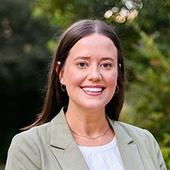
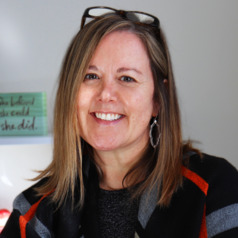
Danielle LaPointe-McEwan
Adjunct Assistant Professor, Faculty of Education, Queen's University, Ontario
Dr. LaPointe-McEwan’s research has primarily focused on enhancing professional learning outcomes for educators and students in the context of K-12 education, particularly emphasizing how educators use multiple forms of classroom and program data, including video, to inform professional learning and practice across educational systems. She has led multiple education-based program evaluations, working collaboratively with school districts, education networks, the Ministry of Education, and educational organizations to enhance evidence-informed practice and valued program outcomes for stakeholders. In all of her work, Dr. LaPointe-McEwan prioritizes authentic partnerships that bridge research and practice and foster meaningful change for systems, educators, and students.
Less ![]()
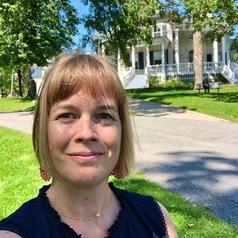
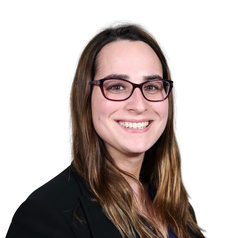
Danielle McLean
Freelance Reporter and Editor, The Conversation
Danielle McLean is an award-winning freelance reporter and editor. Her work has been published in The New York Times, The Atlantic, Teen Vogue, The Washington Post's The Lily, CNN, and Higher Ed Dive.
Less ![]()
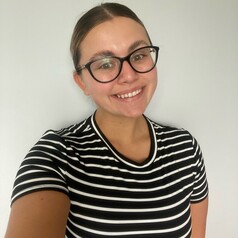
Danielle Paddock
Research Associate in the Centre for Behavioural Science and Applied Psychology (CeBSAP), Sheffield Hallam University
I am a behavioural science researcher in the Centre for Behavioural Science and Applied Psychology at Sheffield Hallam University. I am a cyberpsychologist and my research adopts a mixed methods approach. My main interests are in adolescent development, wellbeing, and mental health in the digital age, with a particular interest in body image and social media. I am also interested in developing, delivering and evaluating educational programmes and digital interventions to tackle these topics.
Less ![]()
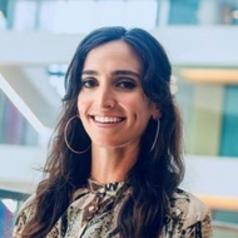
Danielle Sukenik
Instructor of Psychiatry, University of Colorado Anschutz Medical Campus
Danielle Sukenik is a licensed marriage and family therapist based in Denver, Colorado at the Anschutz Medical Campus. Danielle specializes in working with healthcare providers in training to aid in addressing difficult life transitions, anxiety, trauma, and relationship challenges. She is passionate about supporting others in reaching their highest potential, finding their own solutions, and living a life aligned with what matters most through a variety of different therapy modalities and interventions.
Less ![]()
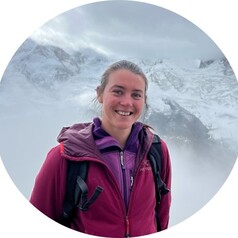
Danielle Udy
Research associate in Climatology, University of Tasmania
I am a climate scientist, with research expertise in the impacts of synoptic-scale weather and large scale modes of climate variability (e.g. ENSO and SAM) on Australian and Antarctic climate. My PhD explored how an East Antarctic ice core is connected to Australian flood, drought and bushfire risks.
I’m also passionate about translating climate research into practical advice for the public and private sectors to better understand, manage and mitigate climate risks.
Less ![]()
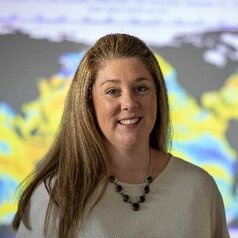
Danielle Verdon-Kidd
Associate Professor, School of Environmental and Life Sciences, University of Newcastle
Dr Danielle Verdon-Kidd is a hydroclimatologist with research primarily focusing on the drivers of climate variability and change in Australia and the Pacific, investigating how to use these insights to improve natural resource management, particularly with respect to water availability. From small consulting teams through to Federal Government, Dr Verdon-Kidd’s climate expertise has been applied to inform water-based resource and environment management systems.
Less ![]()
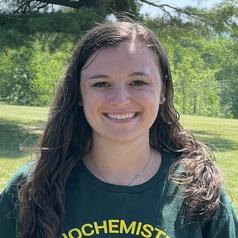
Danielle Whitham
Ph.D. Candidate in Chemistry and Biochemistry, Clarkson University
Danielle is a current graduate student in the Department of Chemistry and Biochemistry at Clarkson University working towards a Ph.D in Chemistry. She received a bachelors of science in Chemistry in 2020 from Clarkson University as well. Her research is centered around identification of a protein biomarker for breast cancer detection using proteomics and mass spectrometry. She works with breast milk and blood serum as the main bodily fluids to identify proteins dysregulated between women with breast cancer and women without. Her goal is to identify proteins which are implicated in breast cancer and can be used as a biomarker so women of all ages can be screened for breast cancer development.
Less ![]()
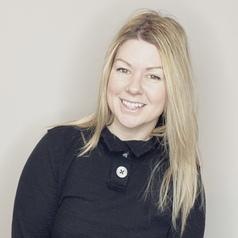
Danielle Williams
Postdoctoral Fellow in Philosophy of Science, Arts & Sciences at Washington University in St. Louis
I hold a PhD in philosophy with a specialization in the cognitive sciences and AI.
My dissertation topic was on the nature of physical computation-- a topic that is found at the intersection of philosophy, computer science, AI, and the psychological and brain sciences. I have published several papers in philosophy of science (specifically on topics in neuroscience and cognitive science) as well as on the nature of technology.
Less ![]()
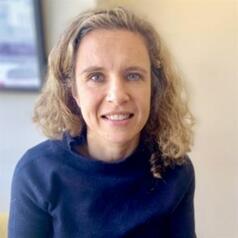
Danielle Wurzel
Paediatric Respiratory Physician, and Honorary Fellow Manager, Murdoch Children's Research Institute
Dr Danielle Wurzel is a paediatric respiratory physician. She currently has appointments as a Consultant Physician in Respiratory Medicine at the Royal Children’s Hospital, Honorary Senior Fellow in Paediatrics at the University of Medicine and Research Fellow at the Murdoch Children’s Research Institute. Her clinical interests include a broad range of respiratory problems with a special interest in childhood cough, breathing difficulties and asthma. Danielle has a PhD in chronic wet cough in children and bronchiectasis with an ongoing research program to investigate the early origins of bronchiectasis with the aim of developing interventions to prevent chronic lung diseases in children.
Less ![]()
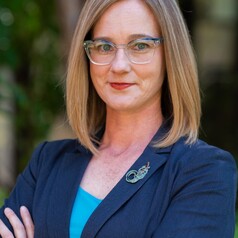
Danielle Arlanda Harris
Senior Lecturer, Griffith University
Danielle Arlanda Harris, PhD is the Deputy Director-Research of the Griffith Youth Forensic Service and a Senior Lecturer in the School of Criminology and Criminal Justice at Griffith University. She has more than 20 years’ experience working in the US, the UK, and Australia primarily in the area of research, treatment, and prevention of child sexual abuse. She received a prestigious grant from the Guggenheim Foundation to fund her ground-breaking mixed methods empirical study of desistance from sexual offending (which included interviews with nearly 100 men convicted of sexual offences). Since returning to Australia in 2016, her innovative research has been funded by Westpac, ANROWS, and the National Centre for Action on Child Sexual Abuse. She regularly consults with the Daniel Morcombe Foundation, Queensland Police, Queensland Corrections, and yourtown (Kids Helpline) and sits on the National Clinical Reference Group of the National Office of Child Safety.
She has published over 30 peer reviewed journal articles and book chapters and has given more than 50 presentations at international conferences. Her first book (Desistance from Sexual Offending) received the Australia and New Zealand Society of Criminology Book award in 2019.
Less ![]()
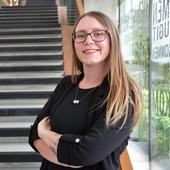

Danielle Jade Roberts
Senior Lecturer, University of KwaZulu-Natal
Danielle holds a PhD in Statistics. She has extensive experience in curriculum development, research and student supervision in applied statistics and data science. She takes a data-driven approach to solve real world problems using statistics, machine learning and technology, with a focus on public health and other societal challenges in resource-limited settings in Africa.
Less ![]()
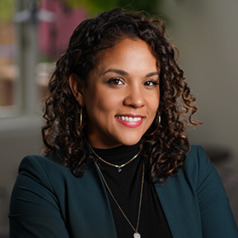
Danielle K. Brown
Professor of Journalism, Michigan State University
Danielle Brown, Ph.D. is the 1855 Community and Urban Journalism Professor and an associate professor in the School of Journalism at Michigan State University. She is also the founding director of the LIFT Project -- an engaged research effort aimed at identifying networks of trusted messengers in underrepresented communities in the Midwest to 1) understand their effects on civic and democratic life; 2) create, network, and allocate resources needed to inform communities better; and 3) build new opportunities for sustainable reparative narrative change.
Dr. Brown's interdisciplinary and community-engaged scholarship utilizes the cross-sections of journalism, political science, and sociology. She specializes in analyses of media representations and narrative change, social movements and activism, and identity and political psychology. Dr. Brown has published dozens of articles in peer-reviewed journals and media outlets. She has received multiple awards and recognition for her research and service record as an early-career scholar and pioneering public engagement work. Dr. Brown is an associate editor for the International Journal of Press/Politics. She previously served on the faculty at the University of Minnesota and Indiana University. Prior to joining the academy, she was a photojournalist, writer, and later a non-profit public relations professional.
Less ![]()
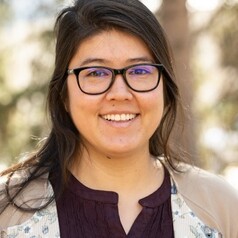
Danielle Lin Hunter
Postdoctoral Scholar in Forestry and Environmental Resources, North Carolina State University
I am currently a postdoctoral scholar at North Carolina State University, where I manage the Crowd the Tap participatory science (citizen science) project that crowdsources the locations of lead plumbing and where I study participation in our project. My research shows that engaging participants through partner organizations can help increase the diversity of participants. I also do contract work with the North Carolina Environmental Justice Network supporting their participatory science where I support communities interested in protecting their air quality. I have a PhD in Ecology with a Human Environment Interactions Emphasis from Colorado State University where I studied how scientists communicate about and carry out environmental participatory science projects. Finally, I have a bachelor's degree from Lee University Biological Sciences.
Less ![]()
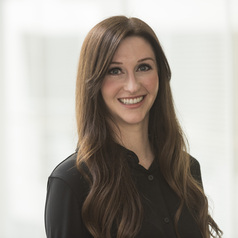
Danielle Mariann Dove
Surrey Future Fellow and Lecturer in English Literature, University of Surrey
Danielle Dove is Surrey Future Fellow and a Fellow of the Institute for Sustainability at the University of Surrey. Her research centres on Victorian and Neo-Victorian literature, with a specific focus on dress and fashion history, material culture, and sustainability.
Less ![]()
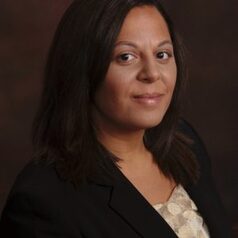
Danielle N. Boaz
Associate Professor of Africana Studies, University of North Carolina – Charlotte
Danielle N. Boaz is an Associate Professor of Africana Studies at the University of North Carolina at Charlotte, where she offers courses on human rights, social justice, and the law. Dr. Boaz is the author of Banning Black Gods: Law and Religions of the African Diaspora and Voodoo: The History of a Racial Slur. Her website, www.religiousracism.org, tracks cases of discrimination and violence against religious communities in North America and Brazil. Dr. Boaz is Co-Editor-in-Chief of the Journal of Africana Religions. From 2023-2024, Dr. Boaz is a public fellow with the Public Religion Research Institute.
Less ![]()
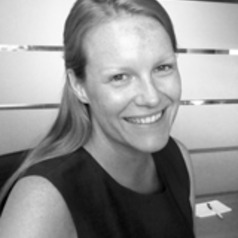
Danika Wright
Dr Danika Wright is a Lecturer in the Discipline of Finance and the Honours Program Director at the University of Sydney Business School.
Dr Wright’s expertise is in the design, investment and operations of real estate markets. Her research has contributed to the development of the benchmark house price index used in Australia. She is sought out for her knowledge on real estate prices and modelling, and is a member of the Sirca-RP Data joint research committee.
Her current research projects examine investor behaviour in different settings, including real estate markets, and links to corporate finance.
Prior to appointment at the University of Sydney Business School Dr Wright held quantitative research positions in funds management firms, and continues to provide expert advise to a range of significant industry bodies including the Financial Services Council of Australia and the Reserve Bank of Australia.
Less ![]()
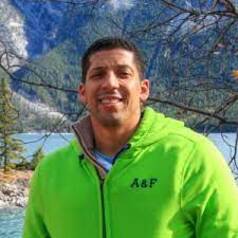
Danillo Augusto
Assistant Professor of Biological Sciences, University of North Carolina – Charlotte
Augusto's research focuses include the genetics of the immune system, molecular biology, genomics, transcriptomics, human population genetics, molecular basis of disease mechanisms
Less ![]()
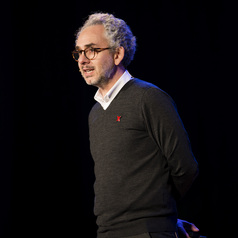
Danilo Palazzo
Professor of Urban Planning and Design, University of Cincinnati
Danilo Palazzo is a Professor and Director of the School of Planning at the University of Cincinnati. Before moving to Cincinnati, he served on the faculty at the Polytechnic of Milan. Italy as a program coordinator for the Master of Architectural Engineering. He earned an M.Arch from the Polytechnic of Milan and a Ph.D. in Planning from IUAV Venezia. Dr. Palazzo has been a visiting scholar at the School of Planning and Landscape Architecture at Arizona State University (1995), the School of Planning at the University of Cincinnati (1997 and 1998), Polytechnic of Milan (2021), and Visiting Professor at the School of Design, Jiangnan University, PRC (2019). His current research interests are urbanism, urban design, and pedagogy.
Dr. Palazzo co-authored with Frederick Steiner, Urban Ecological Design: A Process for Regenerative Places (Island Press, 2011, also translated in Chinese—Yilin Press, Nanjing, 2018—and in Farsi—Ferdowsi University of Mashhad Press, 2023), and authored a chapter on "Pedagogical Tradition" to the Companion to Urban Design (Routledge, 2011). He’s the co-editor, with Vikas Mehta, of the Companion to Public Space (Routledge, 2020) and with Leah Hollstein and Stephen Diko (eds.), of the Routledge Companion to Professional Awareness and Diversity in Planning Education (Routledge, 2023.)
Less ![]()

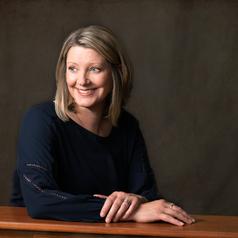
Dannagal G. Young
Professor of Communication and Political Science, University of Delaware
Dannagal G. Young (Ph.D. University of Pennsylvania's Annenberg School for Communication, 2007) is a Professor of Communication and Political Science at the University of Delaware where she studies the content, audience, and effects of nontraditional political information. She has published over sixty academic articles and book chapters on the content, psychology, and effects of political information, satire, and misinformation [Go to CV]. Her book Irony and Outrage: The Polarized Landscape of Rage, Fear, and Laugher in the U.S. examines satire and outrage as the logical extensions of the respective psychological profiles of liberals and conservatives (Oxford University Press, 2020: here). Her current book project, Wrong: How Media, Politics, and Identity Drive our Appetite for Misinformation with JHU Press is available for preorder and will be published in fall 2023.
Dr. Young's 2020 TED Talk explaining how our psychology shapes our politics, and how media exploit these relationships, has been viewed over 1.9 Million times. She publishes extensively in the popular press with essays and Op-eds in outlets including Vox.com, The Washington Post, and The Atlantic. She has appeared on CNN, PBS Newshour, ABC News, NPR, and various national and international podcasts. As of 2020, her research has been cited in over 70 popular press articles, news stories, and interviews at such outlets as The Washington Post, USA Today, Politico, Christian Science Monitor, Variety, the New York Times, the Atlantic, PBS, Slate, and Vox. Her popular University of Delaware course "Propaganda and Persuasion" was released by The Great Courses in 2023. In recognition of her public facing work, in 2021, Dr. Young became the inaugural recipient of the Dr. Robert M. Entman Award in Democracy and Political Communication from the School of Media and Public Affairs (SMPA) at The George Washington University.
Young is a Research Fellow with the University of Delaware's Center for Political Communication and was awarded the University of Delaware's Excellence in Teaching Award in 2014. She holds affiliations with the University of Pennsylvania's Annenberg Public Policy Center and the University of Arizona's National Institute for Civil Discourse (NICD), where she co-edited of "A Crisis of Civility: Political Discourse and its Discontents" (Routledge, 2018).
Less ![]()
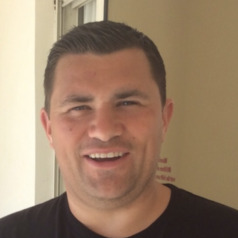
Danny Buckley
Senior Lecturer in Enterprise, De Montfort University
Dr Danny Buckley is a Senior Lecturer in Enterprise at De Montfort University. Having spent over twenty years working in the automotive, fashion, and sports industries he joined academia in 2016. He is currently the Director for the Help to Grow Management programme at De Montfort University and the Deputy Director for Apprenticeships within the faculty of Business and Law.
Danny’s research interests include informal work, the cash-in-hand economy, retail and sales environments, social mobility and SME businesses.
Less ![]()
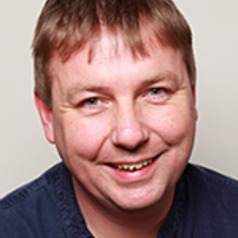
Danny Dorling
Danny Dorling joined the School of Geography and the Environment in September 2013 to take up the Halford Mackinder Professorship in Geography. He was previously a professor of Geography at the University of Sheffield. He has also worked in Newcastle, Bristol, Leeds and New Zealand, went to university in Newcastle upon Tyne, and to school in Oxford.
Much of Danny's work is available open access (see www.dannydorling.org). With a group of colleagues he helped create the website www.worldmapper.org which shows who has most and least in the world. His work concerns issues of housing, health, employment, education, wealth and poverty. His recent books include, co-authored texts The Atlas of the Real World: Mapping the way we live and Bankrupt Britain: An atlas of social change.
Recent sole authored books include, Injustice: Why social inequalities persist in 2010; So you think you know about Britain and Fair Play, both in 2011; in 2012 The No-nonsense Guide to Equality, The Visualization of Social Spatial Structure and The Population of the UK; and in 2013 Unequal Health, The 32 Stops and Population Ten Billion.
Before a career in academia Danny was employed as a play-worker in children's play-schemes and in pre-school education where the underlying rationale was that playing is learning for living. He tries not to forget this. He is an Academician of the Academy of the Learned Societies in the Social Sciences, Honorary President of the Society of Cartographers and a patron of Roadpeace, the national charity for road crash victims.
Less ![]()
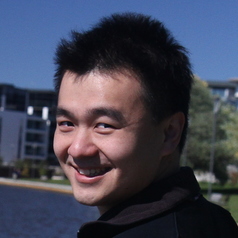
Danny Liu
Associate Professor in Academic Development and Leadership, University of Sydney
Danny is an Associate Professor at the University of Sydney and works in the DVC (Education) Portfolio. A multiple national teaching award winner, he is a biologist by training, programmer by night, educational researcher and academic developer by day, and educator at heart.
Less ![]()
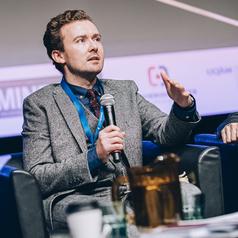
Danny Steed
Lecturer in Cyber Security, Cranfield University
Danny Steed is Lecturer in Cyber Security at Cranfield University. A lecturer, author, public speaker and consultant, Danny's experience covers the creation and delivery of numerous courses specialising in national security strategy to student, professional, and military cadres.
Danny also has experience of government service in operational cyber security as well as private industry consultancy.
His second book, The Politics and Technology of Cyberspace, was published by Routledge in 2019.
Less ![]()
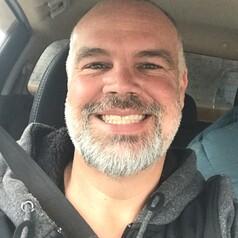
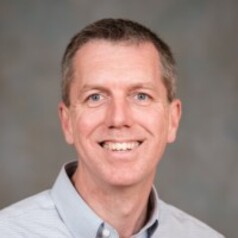
Danny Weathers
Professor of Marketing, Clemson University
My research focuses, broadly, on consumer behavior and decision making. More specifically, I research consumer price and number judgements, patterned behavior (streaks), online information processing, agricultural marketing, and anything else I find interesting. My research has appeared in outlets such as the Journal of Marketing Research, Journal of Retailing, Journal of the Academy of Marketing Science, Decision Support Systems, Journal of Business Research, Journal of Advertising, and Marketing Education Review.
Less ![]()
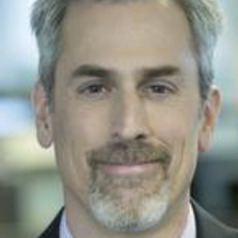
Dante Chinni
Director, American Communities Project, Michigan State University
Dante Chinni is a data and political journalist and director of the American Communities Project, which is based at the MSU J-School. He is a winner of the Knight-Batten Award for Innovation in Journalism and co-author of the book Our Patchwork Nation. Chinni is a contributor to and writer for the Wall Street Journal and to NBC News's Meet the Press, for which he produces the weekly Data Download segment.
Starting in November of 2022, the American Communities Project is embarking on a three-year study of American Fragmentation, funded by a $2.4 million grant from the Robert Wood Johnson Foundation. That study will combine survey research, data analysis and on-the-ground reporting in an effort to better understand what is dividing the country and what might help stitch it back together.
A graduate of Michigan State, when Dante is not in East Lansing he can usually be found living in Washington with his wife Christina Ianzito and their dog Skeeter.
Less ![]()
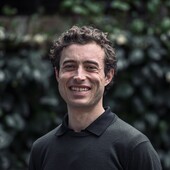
Dante McGrath
Postdoctoral Researcher, Centre for Climate Repair, Department of Engineering, University of Cambridge
Less ![]()
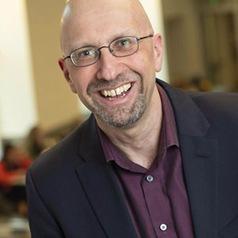
Dante Scala
Professor of political science, University of New Hampshire
Dante Scala is an expert on the New Hampshire Primary, presidential politics, NH politics, political campaigns and debates, and the U.S. presidency.
Less ![]()
- Market Data





















